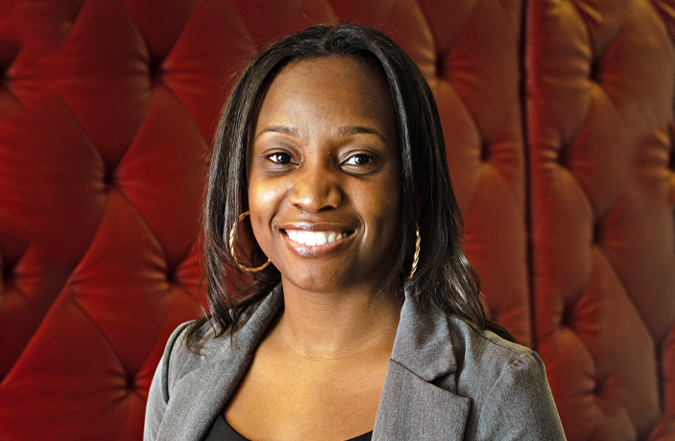
Monique Jackson is an adoption supervisor in Michigan and a graduate of the 2021 cohort of the Minority Professional Leadership Development program at AdoptUSKids. As part of the fellowship, Monique developed a training to help families and workers address issues related to transracial adoption. We talked with Monique about the project.
Your action research project focused on supporting the cultural identity of children who were adopted transracially. Why did you pick this topic?
In my area, we have a lot of transracial foster and adoptive placements—primarily white parents adopting African American children—but we weren’t giving parents or workers much information about how to parent a child of a different race. We held one or two optional trainings each year for families, and none for workers.
Workers didn’t know what to tell families about how to support children, and families didn’t know what questions to ask. Race was like the elephant in the room. But if we don’t talk about race, we are signaling that it’s is not important. And research tells us that when children’s race and ethnicity are ignored, the children suffer from identity and self-confidence issues that can last their entire lives.
All action research projects begin by examining the data. What information did you collect, and what did you learn?
I surveyed colleagues and families and did a lot of reading on the topic! In my surveys, I asked each group questions related to their perceived levels of knowledge and ability to talk about issues related to race and culture.
Half of the parents surveyed said that they felt prepared to talk about race issues with children, but nearly 40 percent reported that they seldom did. And both of those things cannot be true! Because at a minimum, talking about race and culture is an ongoing, evolving conversation.
Workers reported that they rarely talked with families about race and cultural identity. Interestingly, the race of the worker didn’t matter. Black workers told me that they didn’t know where to start. Caucasian workers didn’t know what information was important to share with families. Based on what I learned in these surveys, I developed a two- to three-hour training for each group.
A lot is written about the details of parenting a child of a different race. But your training encompassed broader issues, including our legal system and history. Why?
Because laws dictate everything we do—and cannot do—in both obvious and subtle ways. They are the basis of our society. Until relatively recently, real estate laws banned Black families from owning property in many areas. Harsh drug laws in the 80s led to mass incarceration people of color. Voter suppression laws target minorities. Laws can be used to justify following Black shoppers around stores or evicting young men from coffee shops.
Our Caucasian parents may not have stopped to think about how laws have historically affected children of color differently from them. But they have to! Because it’s their job to understand these realities and have honest conversations about them.
Children start becoming aware of racial differences around the age of five, so that’s when parents will see teaching moments every day—in movies, news, trips to the store….
What were the other components of the training?
I also wanted families and workers to think about their own perspectives and embrace African American culture. It starts with acknowledging the differences—and I’ve learned that people can struggle with that! In the training, I ask participants to talk about things like their standards of beauty and identify things that they appreciate about other cultures. Food is often the first thing that comes to mind!
Finally, I encourage people to engage in African American culture—through visiting historically Black universities and museums; reading books by African American authors and about African American culture; having art by African American artists in the home; watching movies and television shows that celebrate African American culture; learning to cook together. Of course, these are all just a few components of being culturally competent. The work is ongoing. The conversations have to happen every day.
How many families and workers did you train—and what was the feedback?
Last summer I held a total of six trainings. One with foster parents and the rest with staff. I trained 64 staff members and 18 families. The trainings often went over the time allotted because people were so engaged.
I surveyed staff and families after the trainings, and the responses were very encouraging! Nearly 70 percent of staff reported that they learned something new, and more than 70 percent reported that they would share information about cultural resources and activities with families. One hundred percent of families who adopted transracially reported learning something new, and anecdotal feedback has been amazing! I am very proud of these results and encouraged to continue the work.
What are the next steps?
Participating in the MPLD program and developing this training has opened a lot of doors for me. I’ve recently done a two-hour training for our governor’s task force on abuse and neglect that was attended by social workers, foster parents, judges, and others. I’ve also been approached by another state and a regional organization to train their staff.
Now that I know how many people are interested in this topic, I’ll continue to refine the training and share this information with as many people as possible. There is a lot of work to be done to prepare our children to succeed. And if we do it well, hopefully we improve society along the way.
Are you or a colleague you know ready to become a transformational leader? Applications for the fourth cohort of the Minority Professional Leadership Development (MPLD) program are being accepted through June 7.